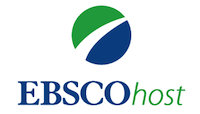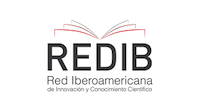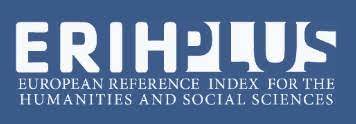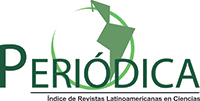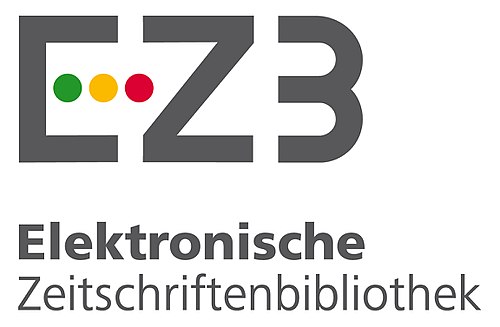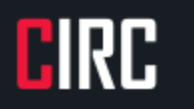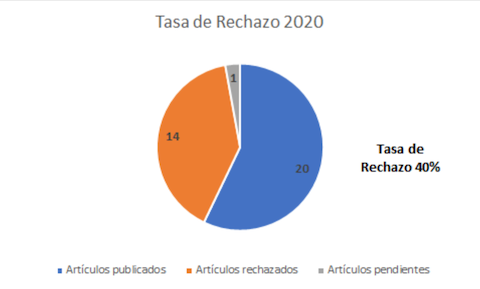The knowledge mangagement regarding the learning organization, focused by theories and trends at national and international level
DOI:
https://doi.org/10.18667/cienciaypoderaereo.528Keywords:
Business Knowledge, Resources and Capabilities, Explicit Knowledge, Implicit KnowledgeAbstract
In this article we present evolutionary concepts about knowledge management, making a historical journey until the knowledge era and the knowledge society. Added to a reflection about the main tendencies in different countries, to give an overview on the current development of knowledge management, especially for Latin America. It also presents tools and models of the main exponents of knowledge management, being a starting point for de development and deepening of this topic considered within the branch of strategic management and the development of competitive advantages through capitalization of experiences and the generation of new knowledge.
Downloads
References
Barney, J. (1991). Firm Resources and Sustained Competitive Advantage. Journal of Management,17, pp. 99.
https://doi.org/10.1177/014920639101700108
Beatriz, M. (2002). Introducción a la gestión del conocimiento y su aplicación al sector público. Santiago de Chile. pp. 34.
Belknap Press, Cambridge, Mass. Vancouver, Y. (2006). De la gestión de información a la gestión del conocimiento. Acimed.
Berrío, H. (2013). Gestión del conocimiento como bases para la gerencia de centros de investigación en universidades públicas. Revista Dimensión Empresarial, vol. 11, Núm. 1, pp. 116-125
https://doi.org/10.15665/rde.v11i1.165
Bueno, E. (2002). Enfoques principales y tendencias en Dirección del Conocimiento. (Knowledge Management). Capítulo del libro. Gestión del Conocimiento: desarrollos teóricos y aplicaciones. Ediciones la Coria.
Del Moral, A. (2007). Gestión del Conocimiento. Madrid, España: Díaz de Santos S.A Grant, R. (1991). The Resource-Based Theory of Competitive Advantage: Implications for Strategy Formulation. California Managem. Rev, Spring, p.114-135.
https://doi.org/10.2307/41166664
Gergen, K. (1992). El yo saturado. Buenos Aires: Editorial Paidós. La XVII Asamblea General Ordinaria de la Organización Latinoamericana y del Caribe de Entidades Fiscalizadoras Superiores (OLACEFS), Santo Domingo, República Dominicana, el 6 de octubre de 2007.
López, L. (1996). Los Recursos Intangibles en la Competitividad de las Empresas: Un análisis desde la Teoría de los Recursos. Economía Industrial 307, p. 25-35.
Marquardt, M. (1996). Building the learning organization. New York: Mc Graw Hill.
Muñoz, S. (2010). U. de Chile y ENAP firmaron acuerdo para gestión del conocimiento e innovación en Biocombustibles. Universidad de Chile.
Murillo, G. (2009). Conocimiento e innovación en los procesos de transformación organizacional: el caso de las organizaciones bancarias en Colombia. Revista Estudios Gerenciales, vol. 25, No. 112, p. 71-100.
https://doi.org/10.1016/S0123-5923(09)70081-6
Nelson, R. y Winter, S.G. (1982) Evolucionary Theory of Economic Change. Organismo de Servicios Fronterizos del Canadá - CBSA. Canadá. (2012). Simposio sobre facilitación del comercio de la Organización Mundial del Comercio (OMC).
Orozco, J. (2011). Diagnóstico para la propuesta curricular de la carrera de gestión del conocimiento en la modalidad a distancia y la aplicación del método. Documentación de las Ciencias de la Información, 34, pp. 489-504.
https://doi.org/10.5209/rev_DCIN.2011.v34.36469
Pavés, A. (2000). Modelo de implantación de Gestión del Conocimiento y Tecnologías de Información para la Generación de Ventajas Competitivas. Valparaíso, Chile: Universidad Técnica Federico Santa María.
Prahalad, K. y Hamel, G. (1990). The core competence of the corporation. Harvard Business Rev. 68, p.79-91.
Rojas, Y. (2006). (Vancouver). De la gestión de información a la gestión del conocimiento. Acimed.
Soto B, Barrios F. (2006) Gestión del conocimiento. Parte I. Revisión crítica del estado del arte. Acimed.
Valhondo, D. (2003). Gestión del conocimiento del mito a la realidad. Madrid, España: Díaz de Santos S.A
Webgrafía
Introducción a la Gestión del conocimiento y su aplicación al sector público Peluffo A. Martha Beatriz/ Catalan C. Edith (CEPAL 2002) http://www.slideshare.net/lily2009/introduccin-a-la-gestin-del-conocimiento
Lloria A. María Begoña. El Diseño Organizativo y Los Facilitadores Para La Creacion de Conocimiento -1976586.pdf Revista Economía y Empresa N| 51 Vol. XXI file:///C:/Users/Admin/Downloads/Dialnet-ElDisenoOrganizativoYLosFacilitadoresParaLaCreacio-1976586.pdffile:///C:/Users/Admin/Downloads/Dialnet-
Lewis McAnally Salas. La Gestión Del Conocimiento y Las Organizaciones Que Aprenden.- file:///C:/Users/Admin/Downloads/gestion_del_conocimiento.pdf Recuperado 2015.
Arce Larrea Glenn Modelos Empresariales http://es.slideshare.net/Ingridadm/gestin-del-conocimiento-nonaka Recuperado 2015
Aguirre tejedor Modelos de Gestión del Conocimiento. http://es.slideshare.net/XFeRX/modelos-de-gestin-del-conocimiento?related=1 Recuperado 2015
Aprendizaje Organizacional En La Relación Universidad-Empresa Betancourt, S. García y M. Fajardo http://bibliotecadigital.icesi.edu.co/biblioteca_digital/bitstream/10906/71129/1/aprendizaje_organizacional_universidad.pdf
Herramientas y sistemas de gestión del conocimiento para el desarrollo de metodologías centradas en la colaboración y el intercambio. Salinas J./Marin V./ Moreno J./Morales M. (2015) file:///C:/Users/Admin/Downloads/Herramientas%20y%20sistemas%20de%20gestion%20del%20conocimiento%20para%20el%20desarrollo%20de%20metodologias.pdf
Lic. Margarita Natividad Pachas Yzaguirre Profesor Dr. Armando Zárate Junio 2006 http://www.angelfire.com/planet/mpachasy/tesis6.html http://www.uchile.cl/noticias/68184/u-de-chile-y-enap-firmaron-acuerdo-de-desarrollo-c
Grau America Herramientas de Gestión del Conocimiento (recuperado 2015). http://saludpublicavirtual.udea.edu.co/moodle/pluginfile.php/4054/mod_resource/content/1/internalizaci%C3%B3n_06.pdf
La Gestión del conocimiento como ventaja competitiva para agencia de viajes y turismo. Zuleyma Loggiodice Lattuf (2012) http://www.eumed.net/tesis-doctorales/2012/zll/modelos-gestion-conocimiento.html
Lic. Margarita Natividad Pachas Yzaguirre Profesor Dr. Armando Zárate Junio 2006 http://www.angelfire.com/planet/mpachasy/tesis6.htmlhttp://www.uchile.cl/noticias/68184/u-de-chile-y-enap-firmaron-acuerdo-de-desarrollo-c
Grau America Herramientas de Gestión del Conocimiento (recuperado 2015) http://saludpublicavirtual.udea.edu.co/moodle/pluginfile.php/4054/mod_resource/content/1/internalizaci%C3%B3n_06.pdf
La Gestión del conocimiento como ventaja competitiva para agencia de viajes y turismo. Zuleyma Loggiodice Lattuf (2012) http://www.eumed.net/tesis-doctorales/2012/zll/modelos-gestion-conocimiento.html

Downloads
Published
Issue
Section
License
Assignment of Copyrights
Authors assign Ciencia y Poder Aéreo journal the exclusive rights (reproduction, distribution, public communication, and transformation) to exploit and commercialize their work, in whole or in part, in all the formats and modalities of present or future exploitation, in all languages, throughout the life of the work and throughout the world.
All contents published in Ciencia y Poder Aéreo journal are licensed under a Creative Commons Attribution 4.0 International License, whose complete information is available at http://creativecommons.org/licenses/by/4.0/
Under the terms of this license, users are free to download, print, extract, archive, distribute and publicly communicate the content of articles, provided that proper credit is granted to authors and Ciencia y Poder Aéreo, scientific journal of the Graduate School of the Colombian Air Force. Except when otherwise indicated, this site and its contents are licensed under a Creative Commons Attribution 4.0 International License.
For other uses not considered under this license it is required to contact the Director or the Editor of the journal at the e-mail address cienciaypoderaereo1@gmail.com.
The Graduate School of the Colombian Air Force and this publication are not responsible for the concepts expressed in the articles, including the metadata or the affiliation stated by authors. This is the full responsibility of the authors.



